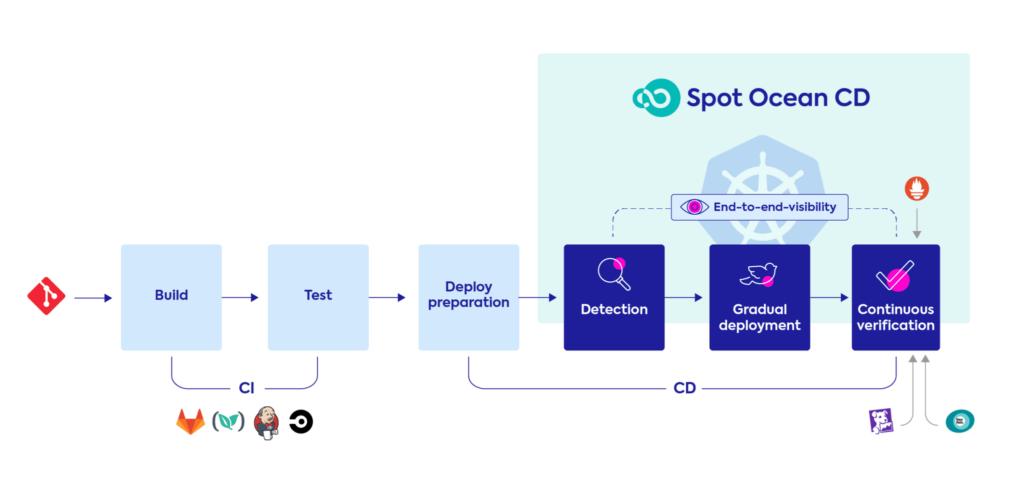Spot by NetApp Adds Argo to Cloud Operations Portfolio
Spot by NetApp today added a continuous delivery (CD) platform for Kubernetes environments to its portfolio of cloud operations management offerings.
Kevin McGrath, vice president and general manager for Spot for NetApp, said Spot Ocean CD is based on the open source Argo CD software. Many DevOps teams building cloud-native applications are embracing Argo CD within the context of a GitOps workflow to integrate the provisioning of infrastructure and application deployments.
Historically, organizations have attempted to tightly couple CD with continuous integration (CI) within an integrated CI/CD platform. However, few organizations have been able to successfully achieve that goal, because each software deployment platform has its own unique set of application programming interfaces (APIs).
With the rise of platforms such as Kubernetes that expose a single set of APIs across multiple platforms, it’s becoming easier to automate software delivery in a way that can be more loosely coupled with CI, noted McGrath.
As that transition occurs, it also becomes apparent that responsibility for software delivery is becoming more centralized. Management of CD platforms is shifting toward IT operation teams that are closer to the production environments where software is going to actually run, he added.
Spot for NetApp chose Argo because it makes it simpler to visually manage release deployments gradually and provides capabilities such as continuous real-time verification, automatic rollback and visibility tools for service owners. Those capabilities make it simpler to both deploy software changes using metrics and policies that identify and fix hidden failure without slowing down releases.
Other capabilities include single sign-on (SSO), granular permissions management for developers, notifications, multi-cluster management and dashboards for managers.
In the longer term, Spot by NetApp is also planning to add integration with legacy CI/CD platforms such as Jenkins and is evaluating Flux, open source version control software that, like Argo, is being advanced under the auspices of the Cloud Native Computing Foundation (CNCF).
The primary reason Argo is gaining traction stems from the fact that many development teams within the same organization prefer different CI tools. A loosely coupled CD platform gives organizations the option to plug different CI tools into a common CD platform.
Originally developed by Intuit, Argo makes it possible to declaratively deploy and run cloud-native applications on Kubernetes clusters using a GitOps workflow that integrates infrastructure-as-code (IaC) with software that needs to be deployed.
Argo itself comprises four sub-projects: Argo Workflows, Argo Events, Argo CD and Argo Rollouts. Argo CD is the most widely adopted, but Argo Workflows enables the creation of complex parallel workflows. At the same time, Argo Events, contributed by Blackrock, provides declarative management of event-based dependencies and triggers. Argo Rollouts defines a set of GitOps best practices to make ArgoCD more accessible. Organizations can, of course, adopt any of the sub-projects independently of each other.
In total, Argo is being actively used in production by more than 350 organizations, including Adobe, Blackrock, Capital One, Google, Intuit, PagerDuty, Peloton, Snyk, Swisscom, Tesla and Volvo. Overall, 8,000 individuals from 2,300 organizations are contributing to the project.
It’s still too early to say unequivocally how DevOps workflows will evolve in the cloud-native era, but as more of these applications are built, it’s obvious that changes will need to be made.



